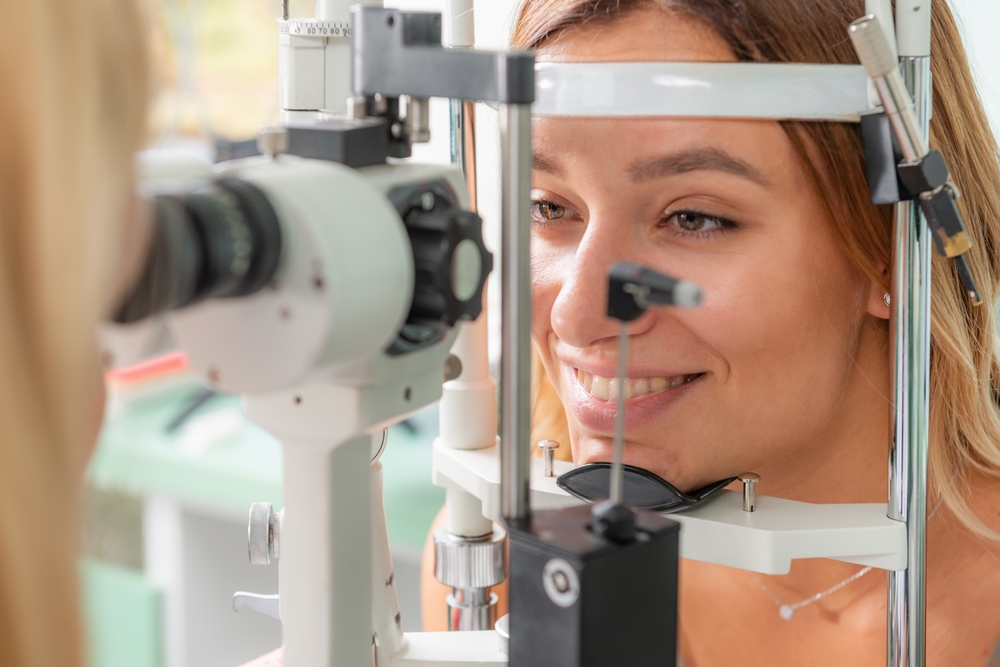
A comprehensive eye exam is a thorough evaluation of your visual system, including your eyes, vision, and overall eye health. This type of exam goes beyond a basic vision screening and is performed by an optometrist.
During a comprehensive eye exam, the eye doctor will assess your visual acuity, eye movement, eye coordination, and overall eye health. They may also use advanced diagnostic tools and techniques to detect any underlying eye conditions or diseases. The goal of a comprehensive eye exam is to ensure your eyes are functioning properly and to identify any potential vision problems or eye health issues early on.
The Importance of Regular Eye Exams
Regular comprehensive eye exams are essential for maintaining good vision and overall eye health. Even if you don't have any obvious vision problems, it's important to schedule routine eye exams to ensure your eyes are functioning properly and to detect any potential issues early on.
Eye health can change over time, and many eye conditions, such as glaucoma, macular degeneration, and cataracts, can develop gradually without noticeable symptoms in the early stages. By getting regular comprehensive eye exams, you can catch these conditions early and take steps to manage them before they progress and potentially cause vision loss.
Five Reasons Why You Need a Comprehensive Eye Exam
1. Vision Correction: A comprehensive eye exam can help identify any refractive errors, such as nearsightedness, farsightedness, or astigmatism, and provide you with the appropriate prescription for corrective lenses, such as glasses or contact lenses.
2. Early Detection of Eye Diseases: Comprehensive eye exams can help detect a variety of eye diseases and conditions, including glaucoma, macular degeneration, cataracts, and diabetic retinopathy, in their early stages when they are most treatable.
3. Overall Eye Health: A comprehensive eye exam can assess the overall health of your eyes, including the health of the cornea, lens, retina, and optic nerve. This can help identify and address any underlying issues that may not be related to vision problems.
4. Baseline Measurements: A comprehensive eye exam can establish a baseline for your eye health, which can be used to track changes over time and identify any potential issues that may arise in the future.
5. Prescription Medication Monitoring: If you are taking prescription medications, a comprehensive eye exam can help monitor any potential side effects or interactions that may affect your vision or eye health.
The Benefits of Early Detection and Treatment
Early detection and treatment of eye diseases and conditions are crucial for maintaining good vision and preventing vision loss. Many eye conditions, such as glaucoma and macular degeneration, can be managed effectively if caught early, but can cause irreversible damage if left untreated.
By getting regular comprehensive eye exams, you can take proactive steps to protect your vision and eye health. If any issues are detected, your eye care professional can recommend appropriate treatment options, such as prescription eyewear, medication, or even surgery, to address the problem and prevent it from worsening.
Book Your Next Eye Exam with Advanced Eyecare Central Coast Today
Maintaining good vision and eye health is essential for your overall well-being. By getting regular comprehensive eye exams, you can take proactive steps to protect your eyes and catch any potential issues early on.
Schedule your comprehensive eye exam today with Advanced Eyecare Central Coast to ensure your eyes are healthy and your vision is clear. Visit our office in Pismo Beach, California, or call (805) 773-6000 to book an appointment today.










